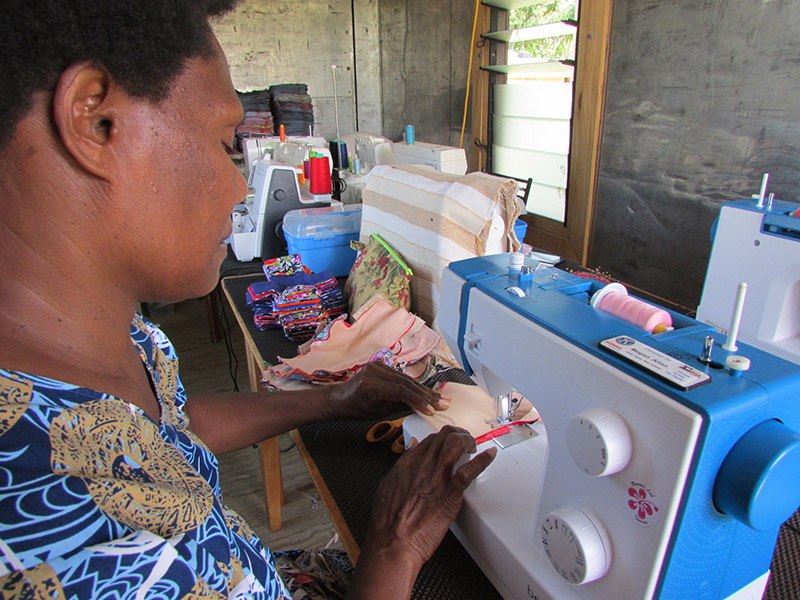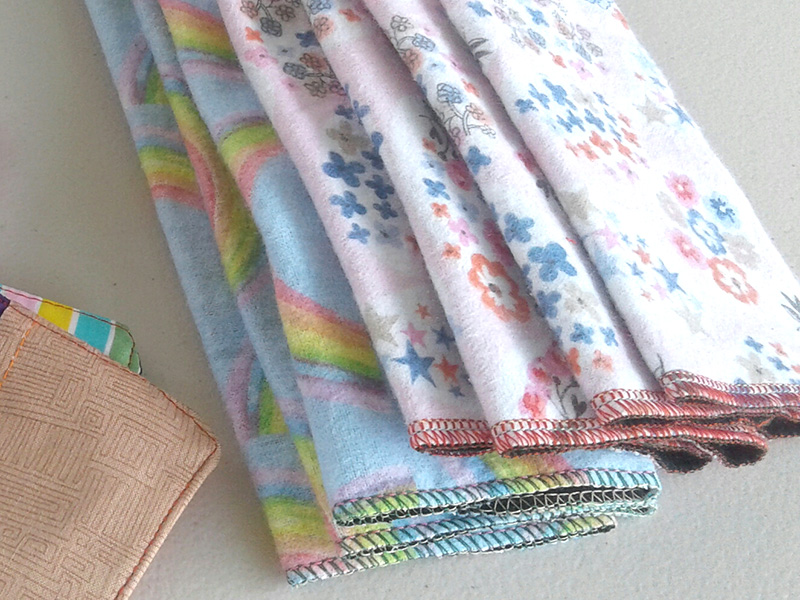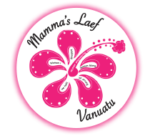Meet the team
Mamma’s Laef Vanuatu is now owned and operated by Jack and Mary Kalsrap, who have been on board with this idea from the very beginning, and employ local staff. Many of these women had never had stable income before, and are now gaining in skills, independence and confidence.
To support the development to ensure a sustainable future, Mamma’s Laef Vanuatu was supported by the Mamma’s Laef Charitable Trust (a registered charity in New Zealand. The Trust closed in June 2022). The Trustees were the Founder of Mamma’s Laef, Belinda Roselli and the other Trustee was Tina Onnes. Tina has been a mentor to Belinda throughout the research phase to the implementation and delivery of the manufacturing and awareness tasks. The partnership between the New Zealand and Vanuatu entities has been formalised through a Memorandum of Understanding. This arrangement gives clarity to donors as well as developing a successful enterprise.
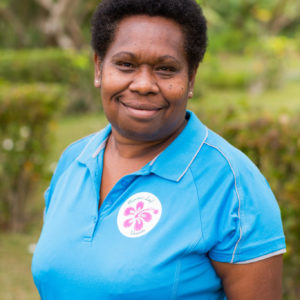
Mary
I’m the mother of 3 adult children. I’m passionate about making a difference for the lives of women in Vanuatu – they are my sistas.
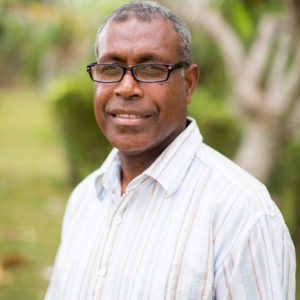
Jack
I am from Pango village, South Efate. I finished school when I was 15 years, but I was in Class 6. In those days, older children were mixed in with younger children. I have daughters and I know the importance of teaching them to live healthy lives, that’s why I am committed to Mammas Laef.
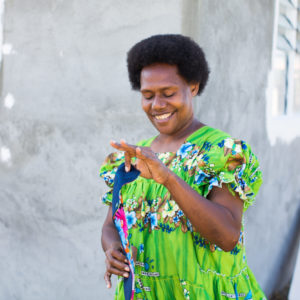
Sonia
I finished school at Year 6. I have 2 adult children. Pango is my home and where I have lived most of my life. I did live for a short time on Erromango where my husband was from, but when he died I returned to Pango. You will find me behind the sewing machine on our work days.
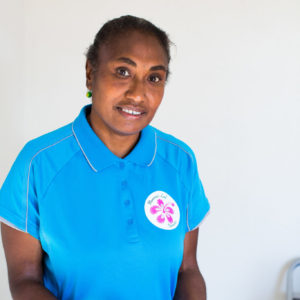
Maryse
My favourite food is laplap yam, which is our traditional food in Vanuatu. My home island is Motalava in the Banks group in the far north of Vanuatu. Within the Mammas Laef team I’m active in providing education for sikmun, it is a very important part of our work.
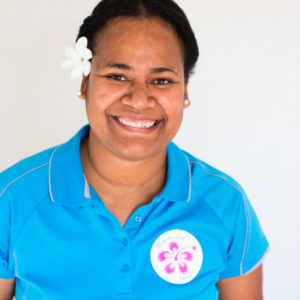
Larysha
I finished school when I was in Year 12, but I wasn’t able to make it to the end of the school year, because we had trouble paying the school fees. I’ve enjoyed working with Mamma’s Laef. We have a lot of laughs. I help in the pre production area, but I am increasing my sewing skills every week.
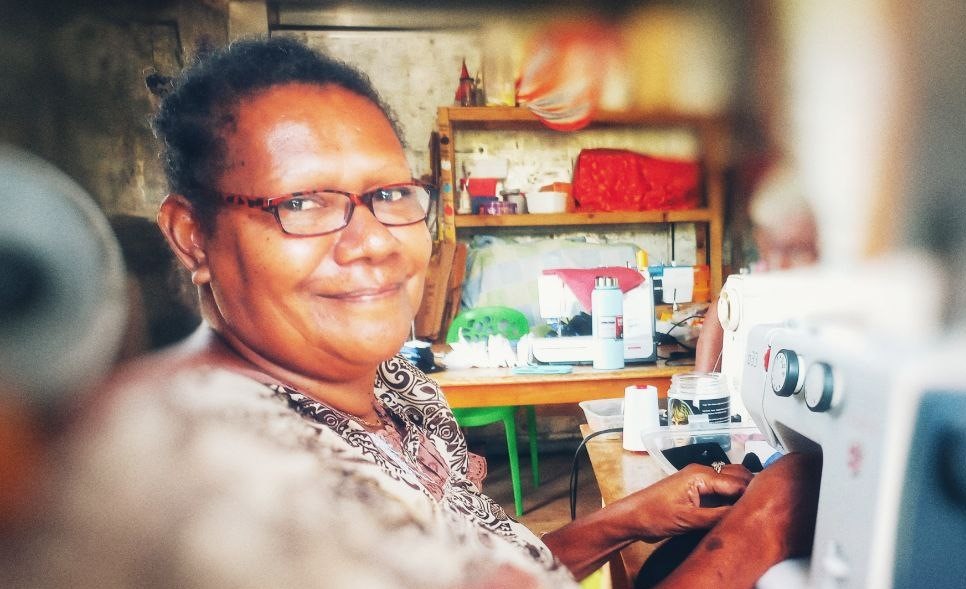
Lillie
I joined the Mamma’s Laef team in 2019. I love being behind the sewing machine. I create products with love.
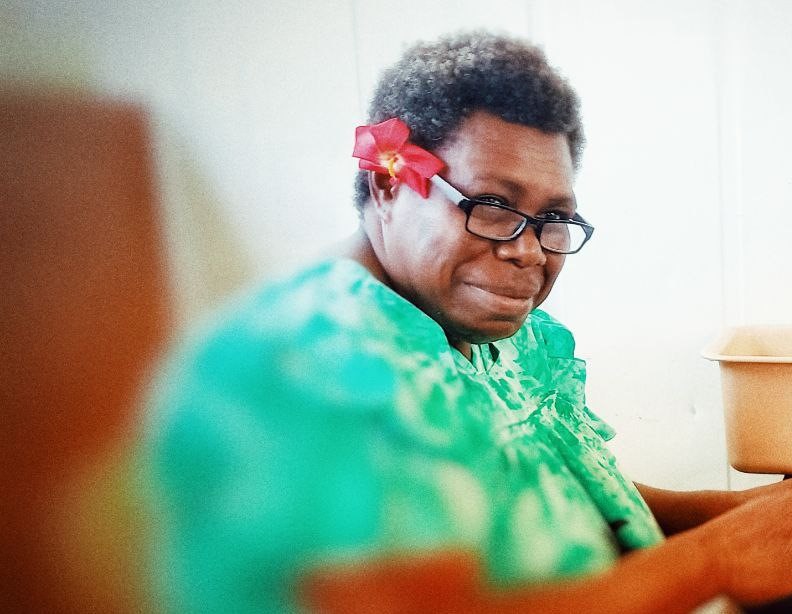
Eva
I am a widow and grateful for the work I have at Mammas Laef. We are a great team. We like to celebrate our achievements and support each other through life.
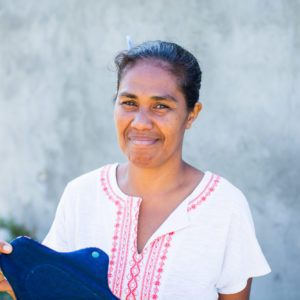
Tousong
My favourite island food is yam. My home island is Efate. I have 4 children and live across the road from the Mammas Laef site. As my sewing skills are developing, I spend most of my time in the cutting and preparation area of production. I enjoy it.
Whats the link between Mamma’s Laef and Lav Kokonas
Mamma’s Laef is a longest running project of Lav Kokonas. You can read more about Lav Kokonas in Belinda’s Blogs. There it tells the story of how Belinda began to “pay it forward in Vanuatu” after a family holiday in 2010.
The approach of Lav Kokonas had always been around, providing a hand-up not a hand-out. It was essential that Mamma’s Laef take that pathway too.
The concept of Mamma’s Laef was sparked when the owner of Lav Kokonas, Belinda Roselli asked the question in the wake of Cyclone Pam (March 2015). “In times of natural disaster in Vanuatu, what do women use for their monthly period?”
Over the next 6 months, the answer became clear. Menstrual tools were not easily accessible at any time for many rural living women in Vanuatu, resulting in women of all ages, not being able to fully participate in daily activities. Alongside the lack of menstrual resources, were the cultural taboos and confusing messages about menstrual health.
And so the plan was put in place to develop an enterprise in Vanuatu where local women would be given the opportunity to developing their skills, providing an income while sewing menstrual pads.
Jack and Mary Kalsrap took up the challenge and hosted the sewing days and housed all the equipment in their home. As we have expanded, so has our base in Pango village, but we are still located on the Kalsrap compound.
Fast forward almost 4 years to March 2019 – since we started producing washable sanitary pads in Vanuatu, the bulk of our sanitary pad packs have been given to girls in schools. We’ve managed to do this by campaigning to donors in Vanuatu, England, New Zealand and Australia. The donors have paid for the pads and we have arranged to distribute the pads to girls in schools and women in communities on 6 islands in the Vanuatu archipelago made up of 83 islands.
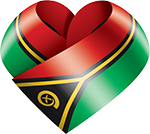
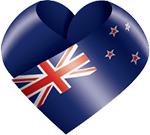
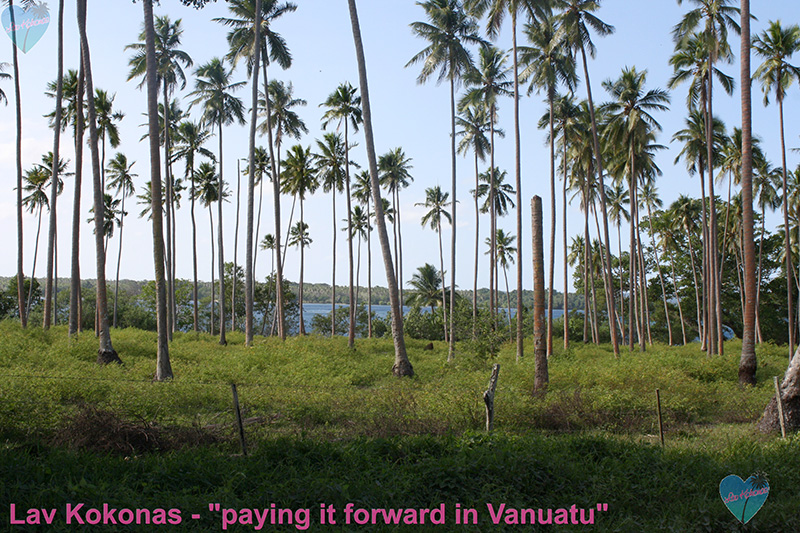
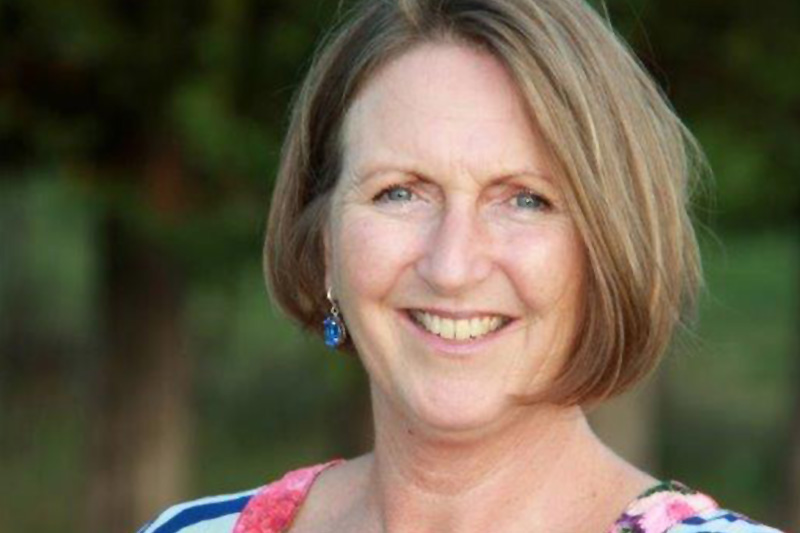
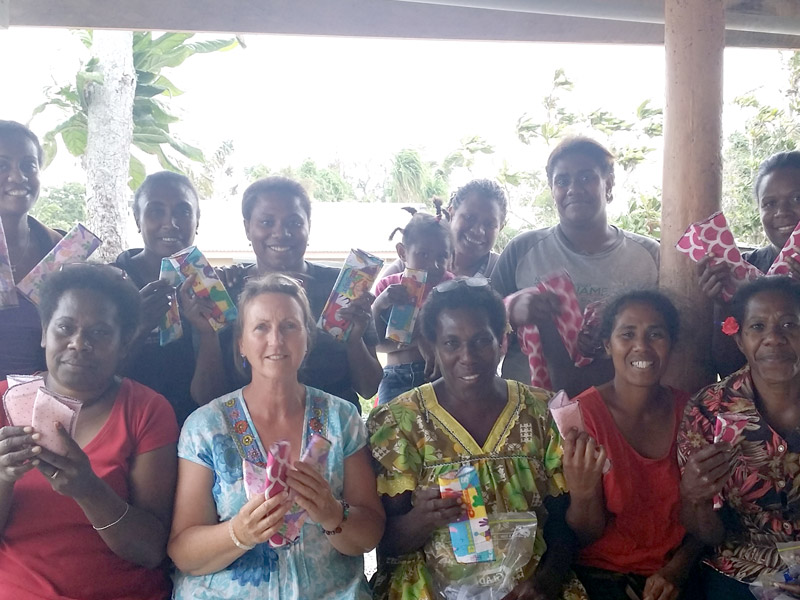
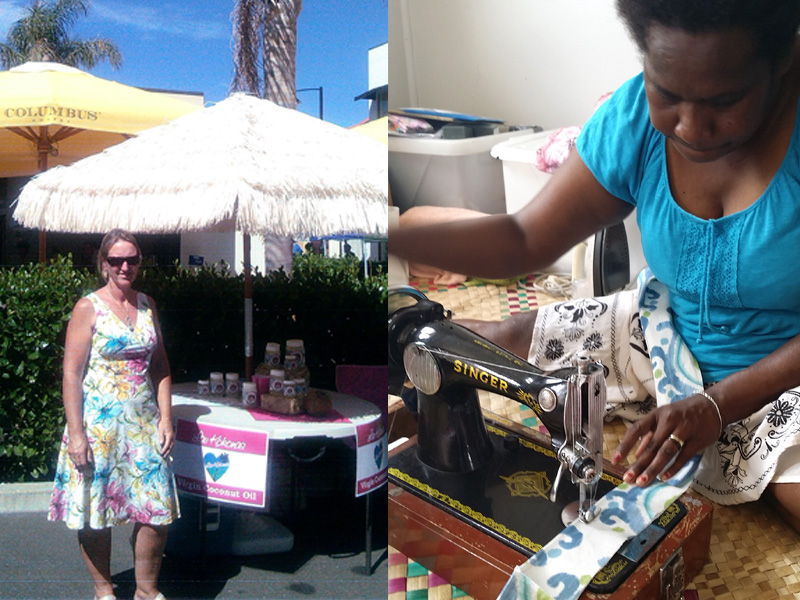
Why social enterprise?
Warning! Embarking on a social enterprise is not for the faint-hearted.
Required are the following attributes … vision, tenacity, endurance, some funds, the ability to tell your story, patience and most importantly – the right people in your team.
Added to those qualities, you need to be able to provide potential funders with robust reporting mechanisms to prove the impact you are creating / have created. You have an obligation to funders results.
Social enterprise can be defined as...
“A revenue-generating business with primarily social objectives whose surpluses are reinvested for that purpose in the business or in the community, rather than being driven by the need to deliver profit to shareholders and owners.”
Maybe this will explain it better
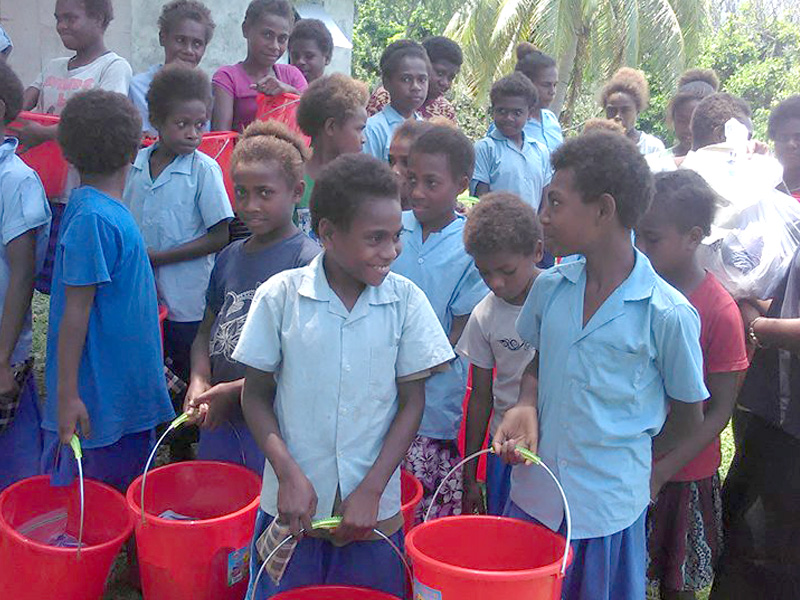
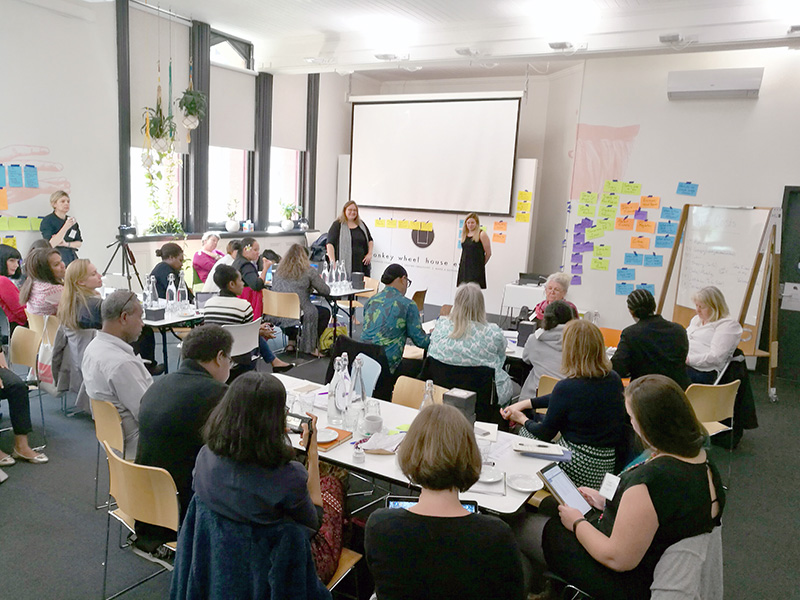
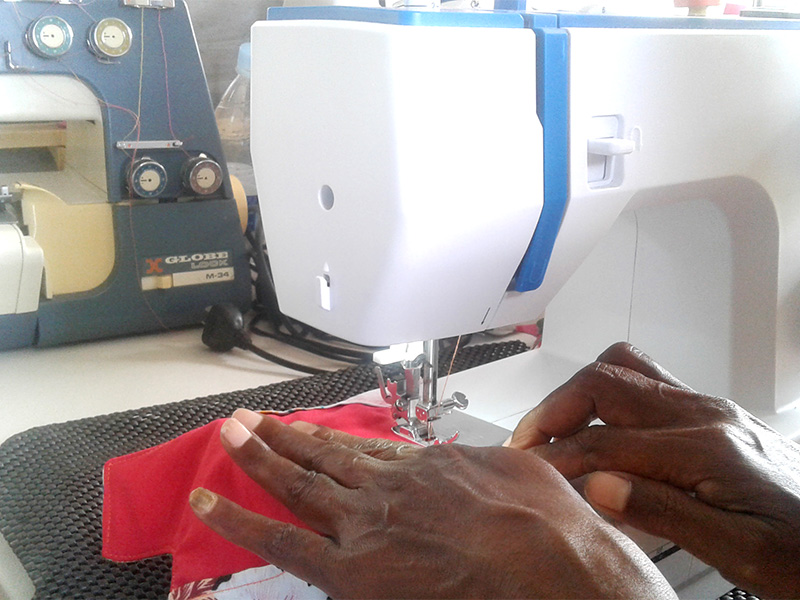
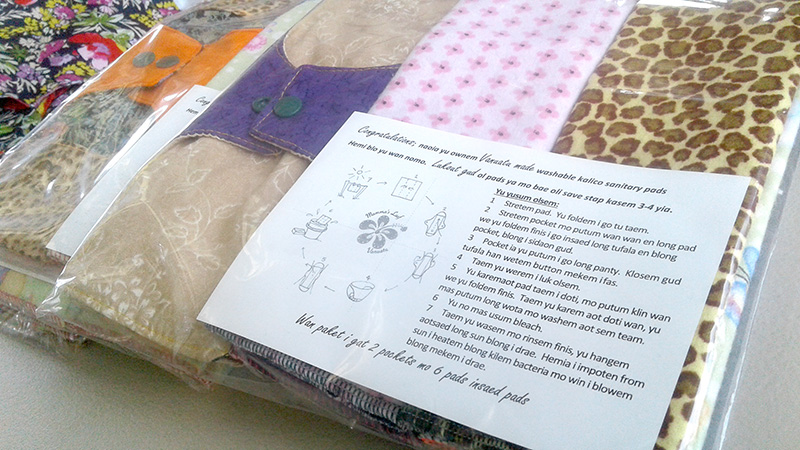
Donation vs. in-country Enterprise
For years, developed nations have given to poorer nations time after time after time after time. Valuable lessons have been learnt along the way. In times of humanitarian disasters (climate or otherwise), donations can be a rapid way of supporting the immediate needs of a community / nation and no one can deny that this approach provides immediate impact, because it is generally done in a coordinated and country led way.
Where mass donations can go terribly wrong, sometimes with disastrous consequences, when well meaning people donate products without thought about HOW to distribute and WHO will receive the products.
This article gives a picture of what can go wrong.
When it comes to longer term supports for a least developed nation, some International, it is recognised that working with a community can provide sustainable, longer lasting positive impacts. That is what we can achieve by being on the ground, and knowing the context of our fellow in Vanuatu.
